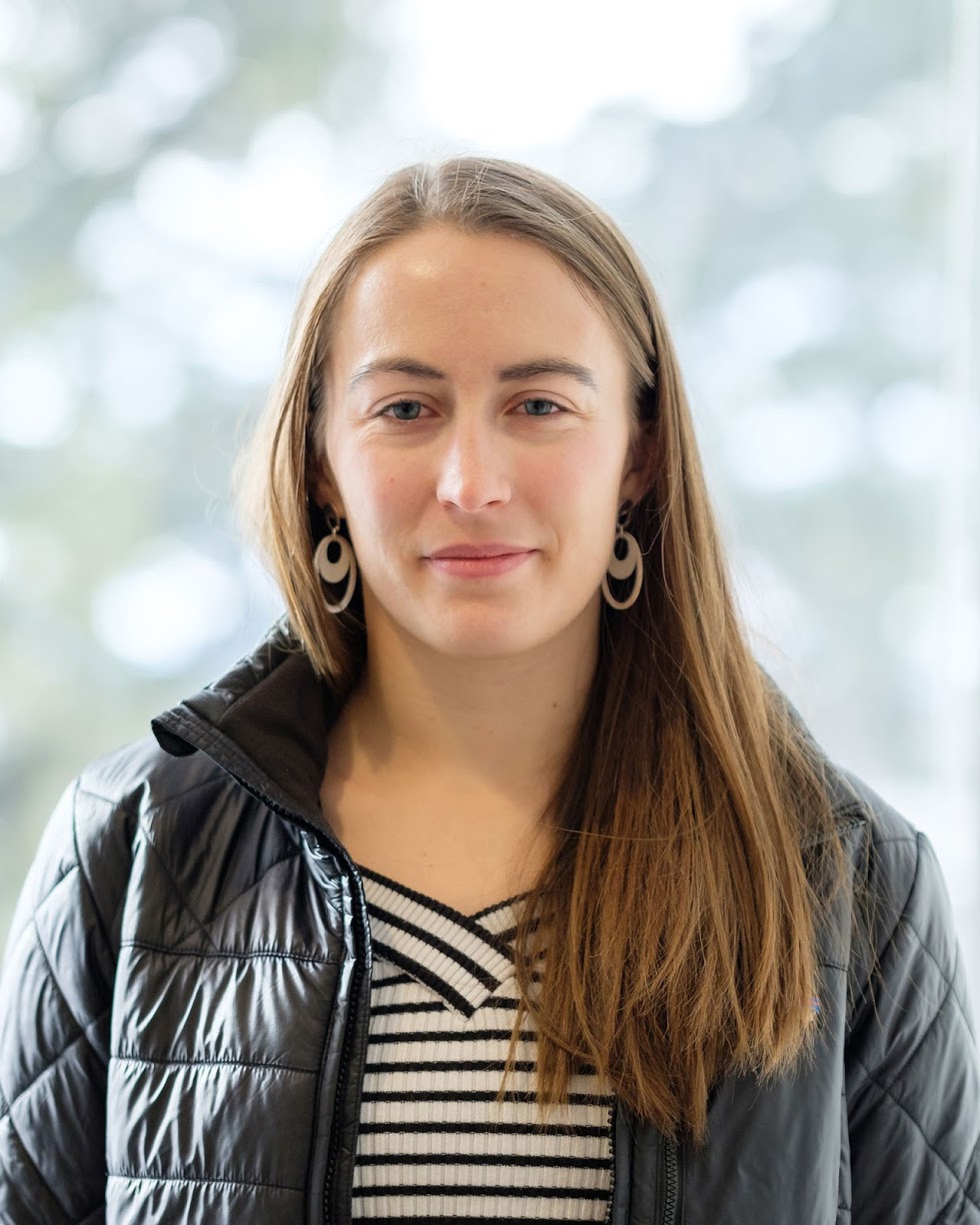Sabine Lang: Math Grad Student

Sabine Lang has always liked math. As a child, she saw math more as games and puzzles that she enjoyed. She always pushed herself to take more advanced math classes and participated in the International Mathematical Olympiad in her last year of high school. She studied at the renowned École Polytechnique Fédérale de Lausanne (EPFL), where she received a bachelor’s and master’s of science in mathematics. Today, she is a Ph.D. candidate in mathematics at the U, working with Professor Gordan Savin, and she expects to complete her Ph.D. in June.
Theta Correspondence
Lang loved her linear algebra class as an undergraduate student because of the mix of abstract proofs and concrete calculations. Her research in representation theory has also a similar balance of theory and computations. “In linear algebra, we use matrices to represent transformations, and in particular symmetries,” she said. “All the symmetries of a specific object form a group, i.e., a set of symmetries that we can compose together, getting another symmetry, with some properties. To classify these groups, we can relate them to matrices, since we know how to do explicit calculations with them. The relationship between groups and matrices is one of the tools of representation theory.”
Lang’s research focuses on the “Theta correspondence,” a conjectural correspondence between automorphic forms associated to the two groups of a dual reductive pair. “We start from a metaplectic group, together with its “smallest” representation,” said Lang. “Then we consider two subgroups contained in the metaplectic one. The Theta correspondence gives a list of the representations of the two smaller groups that can be found as restrictions of the initial representation. I don’t have one big thesis question, but I’m working on different aspects of the Theta correspondence.”
Lang is also committed to teaching and participating in service projects. “Being involved in organizing seminars or mentoring, etc., is a way for me to support other people,” said Lang. “I like to see it as my contribution to making the U’s Math Department a better place.” Lang enjoys teaching and has had the chance to work on a variety of projects for the department. She has helped redesign online homework for a class, mentored other grad students in their teaching, and helped with instructor training.
Similar to many of the women math graduate students, Lang appreciates the mentoring Kelly MacArthur, instructor (lecturer) has provided. “Kelly has served as a role model because she is truly an amazing teacher, and she has also pushed me to try new things in my instruction,” said Lang. She also credits Rebecca Noonan-Heale, instructor (lecturer) as a teaching resource and in providing support.
AWM Activities and Other Interests
The U’s chapter of the Association for Women in Mathematics (AWM) has given Lang a sense of community. “Being a part of AWM has helped me believe that the “math culture” can change,” said Lang. “There are some aspects of the math culture that don’t support diversity. Being a part of AWM and getting in contact with other student chapters at other universities has given me hope in realizing many institutions are taking small steps in creating a more inclusive and diverse environment,” said Lang.
When Lang isn’t doing research or mentoring, she is climbing, skiing, hiking, or camping. “Having the desert only a few hours away has been one of the best things about living in Utah,” said Lang. “I enjoy being able to get away and be alone in the middle of nowhere.”
Grad School Advice
Lang has two pieces of advice for future graduate students: Mental health is very important during graduate school. “Feeling good about yourself, in a place where you have hobbies and friends, can make such a difference on your productivity and well-being,” said Lang. “Don’t forget you are a human being first before being a mathematician.”
Your work does not define who you are. “You can’t learn math without making mistakes,” said Lang. “It’s so important to remember this because when something goes wrong in your work, you may feel it’s the end of the world. Even if your work doesn’t go as planned, it doesn’t mean you’re not a successful person.”
Lang is currently applying for teaching positions. Her focus has shifted to math education rather than research. “I’m convinced there’s a lot to be done in math education to make the classrooms more inclusive and welcoming, and I want to contribute to this change,” she said.
